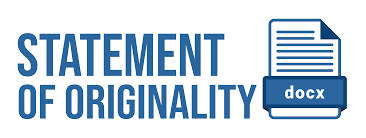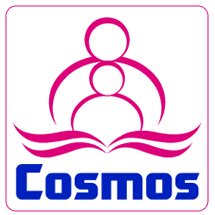Analysis of Lexical Cohesion by Speech Indonesian Students in the United States
DOI:
https://doi.org/10.61672/eji.v8i1.2671Keywords:
Lexical cohesion types, Lexical cohesionAbstract
Finding cohesion and the kinds of lexical cohesion used by Indonesian students in the United States speech on YouTube social media is the goal of this study. The enunciation expressed by student speech produces sentences that contain lexical types by connecting sentence by sentence into one discourse, thus becoming a source of data in this research. After that the data found is analyzed by identification based on the kinds of lexical cohesion obtained from the data source using the theory by Halliday & Hasan, (1976) and also Platridge Brian, (2012) theory. This research discovered using descriptive qualitative methods. To collect the data was carried out using the observation technique. The study findings include a few expressions that combine to create sentences with the various lexical cohesion patterns observed in speech Indonesian students in the United States: 8 data repetition, 1 data synonymy, 4 data meronym, and 2 data collocation. Lexical cohesion is widely used by Indonesian students in the United States in speeches. Lexical cohesion functions to create coherence between the meanings of sentences by selecting vocabulary or lexemes. Lexical cohesion also functions to connect elements in discourse semantically.
References
Erwadi. (2017). ANALYSING THE USE AND FUNCTION OF LEXICAL COHESION IN THE SHORT STORY OF HOP FROG. 14, 15.
Habibah Nur. (2021). Journal of Language Education and Research. Journal of Language Education and Research, 3(2), 51–60. https://www.ceeol.com/search/article-detail?id=963114%0Ahttps://www.academia.edu/download/67246573/Using_Edmodo_as_a_Social_Platform_p.1_2.pdf
Halliday, M. A. K., & Hasan, R. (1976). Cohesion in English (Original work published 1976) (Quirk Randolph (ed.)). M, Halliday, and R. Hasan. https://www.taylorfrancis.com/books/9781317869603
Irawan, N. P. D. D. (2019). Types of Lexical Cohesion Found in Lyric of The Script’s Song. Faculty of Letters and Cultures Udayana University, 1–8.
Platridge Brian. (2012). Discourse Analysis An Introduction. In Hyland Ken (Ed.), Language (2nd ed., Vol. 75, Issue 3). Brian Paltridge, 2012. https://doi.org/10.2307/417076
Rijal, K., Sudarsono, & Suhartono, L. (2021). Analysis of Lexical Cohesion. Jurnal, 1–9. https://jurnal.untan.ac.id/index.php/jpdpb/article/view/33807
Septiani Putri Diah. (2021). Lexical Cohesion in Tessa Hadley’s Short story experience. 7.
Sidabutar, U. (2021). An Analysis of Lexical Cohesion on the Students’ Writing. JETAL: Journal of English Teaching & Applied Linguistic, 2(2), 62–67. https://doi.org/10.36655/jetal.v2i2.533
Sumani, K. D. (2022). Lexical Cohesion Used in “ National Column ” of the Jakarta Post. Jurnal of Literature, Linguistics, and Language Teaching, 3(2), 82–90.
Wijayanti, S., Zahrida, Z., & Mulyadi, M. (2022). Types of Lexical Cohesion in Song Lyrics of The Greatest Showman Movie Soundtrack Album. Journal of English Education and Teaching, 6(2), 13. https://doi.org/10.33369/jeet.6.2.222-234
Downloads
Published
Issue
Section
License
Copyright (c) 2024 Murniwati Ndruru, Mhd. Johan

This work is licensed under a Creative Commons Attribution 4.0 International License.




















